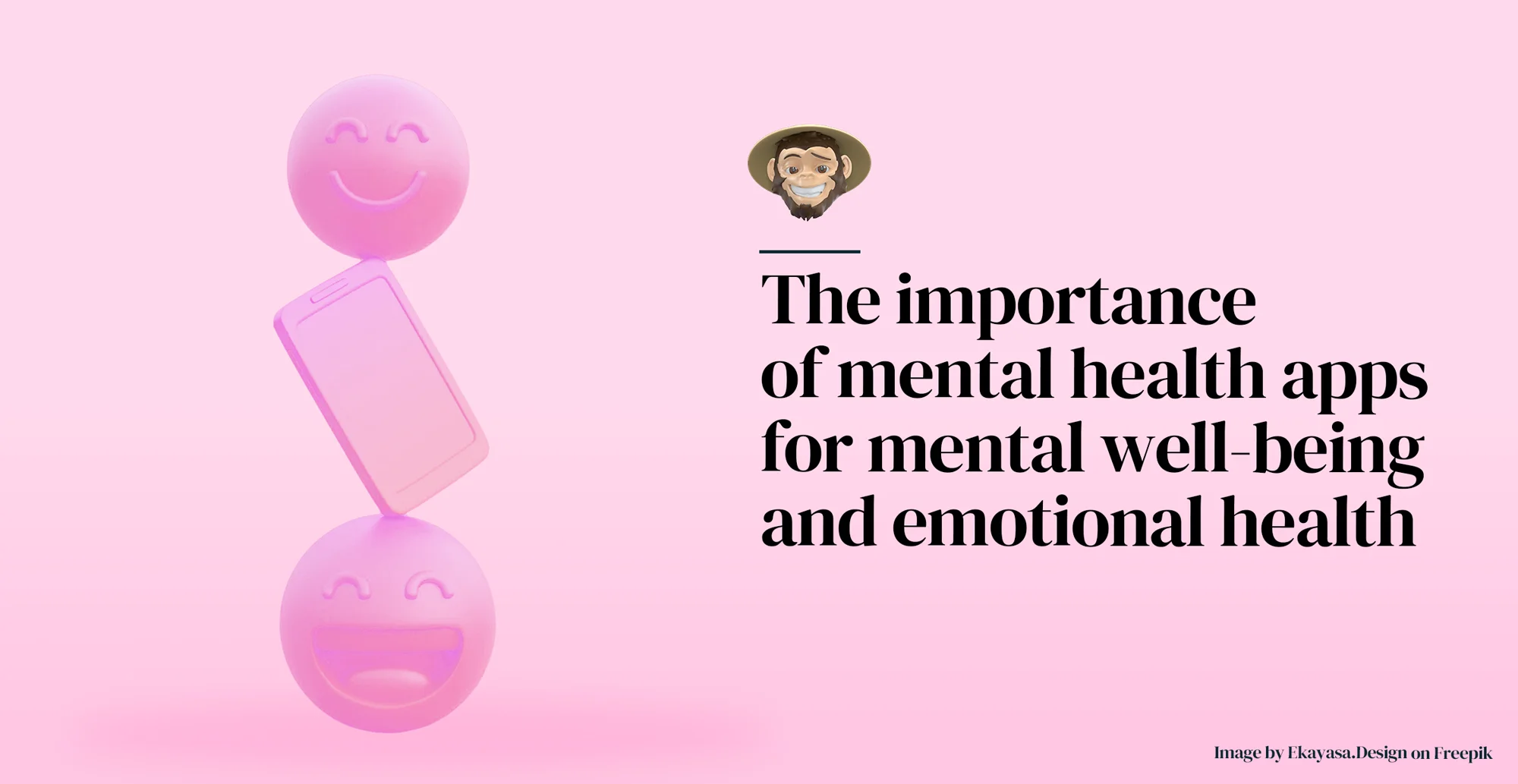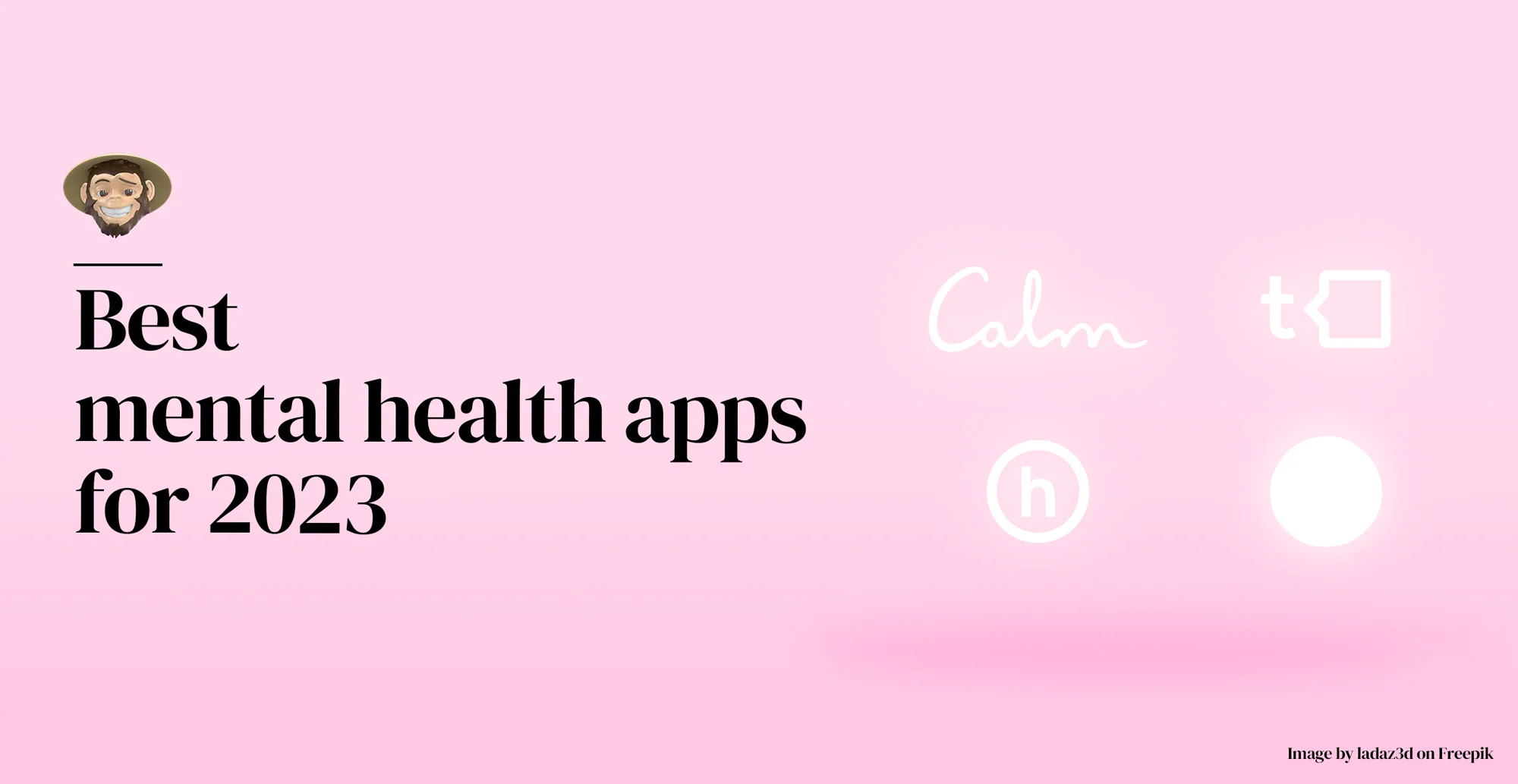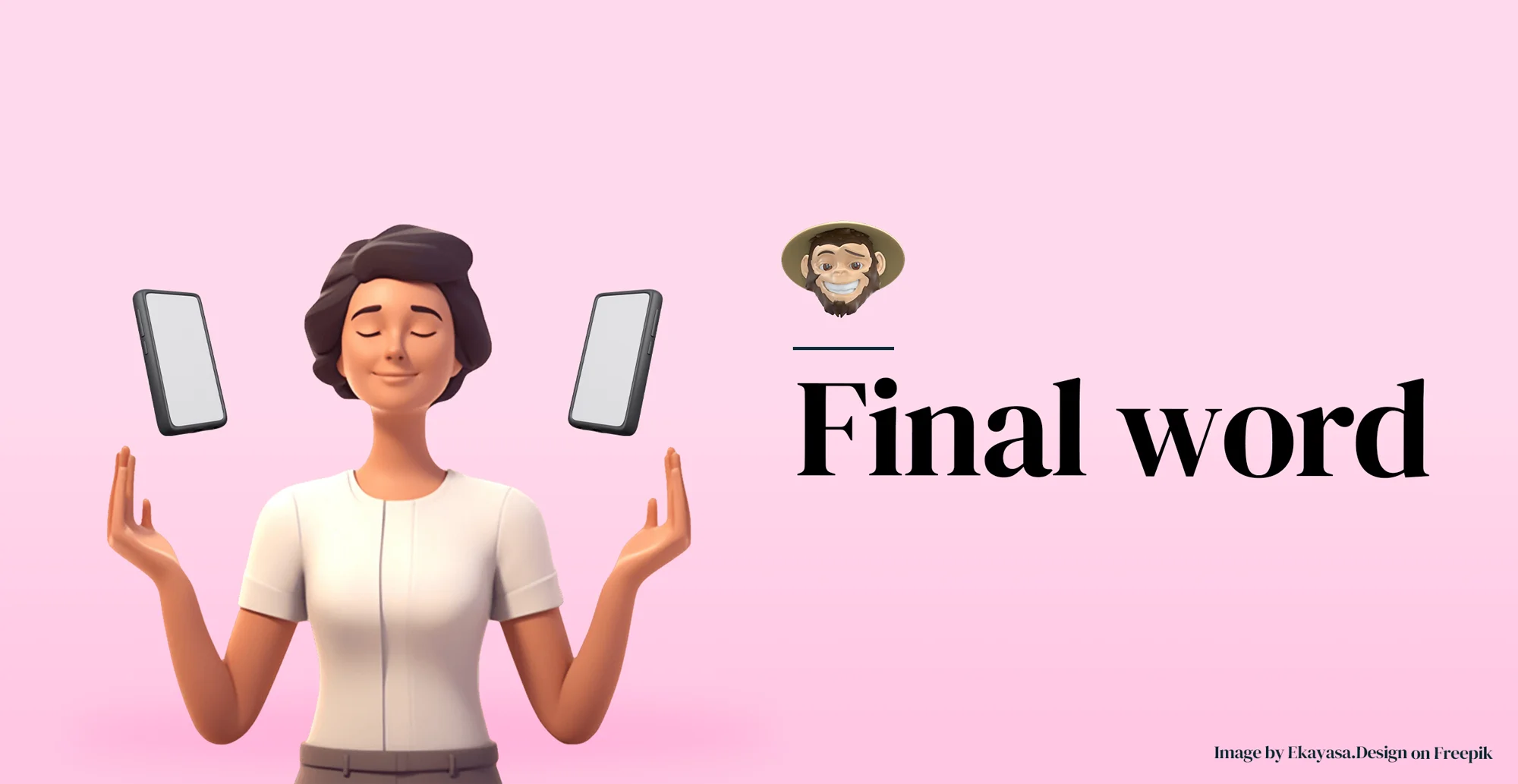In today’s tech-driven world, the importance of mental health cannot be overstated. Thankfully, modern mental health apps represent a very robust way of moving forward in the field of mental well-being.
There’s no denying that our modern lives are a tapestry of emotions, responsibilities, and subjective opinions and perceptions. The more time passes, the more elements are threaded and woven into that tapestry, and our day-to-day becomes overwhelmingly filled with countless different moments, decisions, and experiences. Even more so, in this ever-evolving tech-centric world, where the pace of work and socializing, staying healthy, and well, life itself seems to quicken with each passing day. As a result, some might get crushed by the weight of speed and see their mental health take a hit and decline as juggling all those things becomes increasingly hard. Who hasn’t felt that way? We all have, but how we deal and cope with these struggles marks the difference, hence the importance of mental health. However, for something so profoundly crucial and significant for our general well-being, mental health remains shrouded in secrecy, judgment, and confusion and is often crudely misunderstood and stigmatized.
Glady, in the currently increasingly digital world, where smartphones and the apps within them have become extensions of ourselves, developers and other stakeholders are making significant strides in helping improve the mental health and emotional well-being of users of IT-based products. As a result, we now have mental health apps, which have emerged as priceless tools that offer support, countless resources, and an overall sense of belonging for users who are navigating the complex landscape of mental health. So, in this article, we’ll delve into the intricate landscape of mental health apps and explore how they are revolutionizing well-being, providing emotional support, and contributing to a future where mental health is prioritized. Here we go!

Mental health apps are mobile and software applications that are designed to provide assistance and support to individuals who are interested in improving and managing several aspects of their mental health and overall emotional well-being. These types of applications are usually easily accessible and can be downloaded on any type of operating system of any smartphone, tablet, or computer via an app store or other platforms. Moreover, most mental health apps not only offer a wide variety of functionality, tools, and helpful resources to assist users in monitoring their mental health, but they also support them in coping with their issues (if any), understanding them, and enhancing their overall mental well-being and emotional health.
The importance of taking mental health into the digital realm is enormous. It is only highlighted by studies that show that in the US, about 1 in 25 adults lives with a serious mental illness, such as schizophrenia, bipolar disorder, or major depression. Some of these individuals may have trouble accessing support, others may be embarrassed to ask for help, and many others might not even be aware they have a mental illness. However, if we take mental health into the digital realm and start building and using mental health apps in a more widespread manner, we can ensure that support is always accessible, available, affordable, and adaptable to each user’s individual needs. This way, we can reduce the barriers that have traditionally prevented people from seeking and finding relevant help, fostering a more mentally healthy society.

Most important features of mental health apps
Most modern mental health apps already offer a wide range of tools and resources to help users manage their mental conditions or enhance their mental health. Here are some common features and functions of mental health apps.
Initial self-assessment: The first feature we usually see in mental health apps is a self-assessment tool. This first step allows users to answer questions regarding their daily lives, activities, and emotions so they can gauge their mental health, identify potential issues, and create an in-app profile. As a result, they can access personalized tools and resources relevant to them and any condition they may have.
Journaling options: A crucial and very therapeutic feature of innovative mental health apps is allowing users to log their day-to-day activities and feelings in digital journals. This will help them sustain digital records of their thoughts and feelings so they can visualize and analyze their emotions and see how they change over time. Journaling can also enforce self-reflection and can bring to the surface any issues that the user was previously unaware of.
Emotion tracking: If and when a user chooses to record and monitor their emotions, daily experiences, and mood, many mental health apps use data to predict and analyze those elements in order to help users recognize patterns and identify triggers for stress, anxiety, or depression.
Intervention features: Some mental health apps offer intervention features when the application detects a situation where a user might be a danger to himself or others. They also offer access to crisis helplines or emergency features for users who see themselves in immediate distress. Moreover, in some cases, mental health apps also offer integration with other healthcare apps to give users access to therapy or counseling from medical professionals.
Community support: Some mental health apps offer users the possibility to access or create online communities and forums where they can connect with others facing similar challenges, share their experiences, give advice, and offer overall support.
Educational feautures: Since education is a key component of understanding, accepting, and treating any condition, not to mention reducing stigma, most mental heath apps provide access to educational material regarding various mental health conditions, their symptoms, and treatment.
Meditation and relaxation: Most mental health apps provide very useful and effcetively guided meditation sessions and mindfulness exercises designed to help users maintain a peaceful state of mind, reduce stress, improve focus, and learn and enforce emotional regulation. These therapeutic techniques, which include but are not limited to Cognitive Behavioral Therapy (CBT), Acceptance and Commitment Therapy (ACT), and controlled breathing, are evidence-based and can help users address specific mental health challenges on their own.
It’s important to note that there are different types of mental health apps out there and these feautures are only a broad stroke. Still, as technology continues to advance and we pay more attention to our mental health, more robust feautures and tools will become available to help us address the complex landscape of mental health.

The importance of mental health apps for mental well-being and emotional health
So, now that we know what mental apps are and how they work, let’s take a look at some of the most crucial reasons why mental health apps are important to support mental well-being and emotional health.
Mental health apps offer accessible support
Whether it be via online medical treatment, community support, or sympytom tracking, mental health apps give users instant access to priceless resources, solutions, and support. As long they have the app, users have access to these tools and resources regardless of location or time and some apps don’t even need an internet connection to function, which is especially useful for individuals in remote or underserved areas with limited access to both the internet and mental health services. This unparalleled accessibility ensures that, unlike in-person medical visits or counceling, help is always available no matter when or where users need it. This way, users have an instant coping mechanism and helpline, ensuring timely help, especially during moments of distress. As a result, mental health apps can break down the barriers that have traditionally hindered troubled individuals from seeking help.
Mental health apps can offer anonymity and reduce stigma
As we stated earlier, mental health is still taboo. In some cases, individuals avoid seeking help for fear of being stigmatized or judged. For instance, only 16.5% of people with depression worldwide seek help, mainly because of the stigma around mental health. Herein lies one of the key reasons why mental health apps are essential for mental well-being and emotional health.
Mental health apps allow users to not only seek help instantly but also allow them to do it anonymously if they choose to. This confidentiality is critical to encourage them to find assistance, share their experiences, and open up about their struggles without the fear of judgment. Also, as mental health apps become more widespread and help users vocalize their feelings anonymously, talking about mental health and seeking help when in need are slowly starting to become more normalized, naturally reducing judgment and stigma.
Mental health apps can help raise the chances of early intervention
I think we can all agree that early intervention is critical to saving lives in any field of medicine and, in mental health, even more so. Mental health apps play a vital role in early intervention because they help users exteriorize and address mental health concerns before they escalate. How? First, because, as we already learned above, they often include integration with medical professional portals and helplines which are typically coupled with mood and symptom tracking features that these professionals can access. These features help users record and monitor their emotional condition over time, which helps them and their doctors detect emergency patterns and signs of distress before issues become uncontrollable.
Secondly, mental health apps offer a wealth of user-friendly, accessible resources that include educational material, coping strategies, relaxation techniques, meditation, controlled breathing and counting, and mindfulness exercises. Having access to these resources 24/7 can help empower users to take charge of their own conditions and learn how to manage stress and anxiety, preventing these and other concerning issues from becoming chronic and more serious over time.
Lastly, since mental health apps offer community support and socialization, users can become a part of online communities and forums where they can connect with others facing similar challenges, share their experiences, and get and offer support. As a result, there is always someone watching (sort of speak), and other members of the community can assist users in distress or call for help if they’re concerned about someone’s well-being.
Mental health apps are very affordable
In some cases, medical treatments are expensive, and therapy and counseling can quickly add up, especially for individuals with no health insurance or access to mental health professionals. Thankfully, mental health apps often provide highly affordable or even free tools and resources that are available to all users 24/7. They give individuals free features and functionality such as journaling, mood tracking, breathing and relaxation exercises, and other educational content completely free of charge. Sure, if users want more specific or advanced features, such as personalized support, some apps may charge a fee. However, this fee, which often comes as a monthly or yearly subscription, is typically significantly lower than the cost of going to a traditional, in-person medical professional. In fact, there are now some health insurance plans that cover digital mental health services, making these types of apps even more affordable for users, as the costs are offset by insurance benefits and placing support in the hands of those users who might not be able to access or afford therapy.

Best mental health apps for 2023
While the best mental health app depends on each user’s specific needs, conditions, concerns, and preferences, there are some platforms out there that are standing out as online mental health promoters. Here are the best ones.
Calm: Is a highly popular and widespread mobile application that focuses on mental health, emotional well-being, wellness, and relaxation. calm offers several resources and tools designed to help users track their mental health, manage stress, and anxiety, improve sleep, and practice mindfulness.
Talkspace: Is a mental health app and online therapy platform that connects users with licensed therapists and other mental health professionals. It provides therapy and counseling services via text, voice, and video messaging.
Happify: Is a mental health app and website designed to help individuals improve their mental and emotional well-being via science-based activities and games developed by experts.
Headspace: Is a very popular meditation and mindfulness mental health app that provides guided meditation sessions designed to help users manage stress, improve sleep, increase focus, and promote overall well-being.
No matter which app you choose, if you choose any, remember to always consult with a healthcare professional if you have concerns about your mental health.

Final word
By now, we genuinely hope that the importance of mental health apps for mental well-being and emotional health is clear as water. There is no denying that these types of applications are starting to revolutionize how we view and approach mental health by making it more visible and providing a wide array of tools and resources for those who need it most. They are empowering people to take charge of their mental health and give it the importance and attention it deserves, breaking down barriers and eliminating the stigma that has historically accompanied it. In essence, mental health apps stand at the forefront of a digital revolution in healthcare that has traditionally been led by other conditions. However, as technology continues to advance, we hope that mental health apps will start to play an increasingly vital role in supporting users on their journeys to mental and emotional wellness.
Here at Foonkie Monkey, we always strive to build products that add value to users’ lives and address pressing societal issues. Mental health is no exception. So, if you have any questions regarding mental health app development or want an experienced team like ours to work on your new app, get in touch! We’re more than happy to help!
